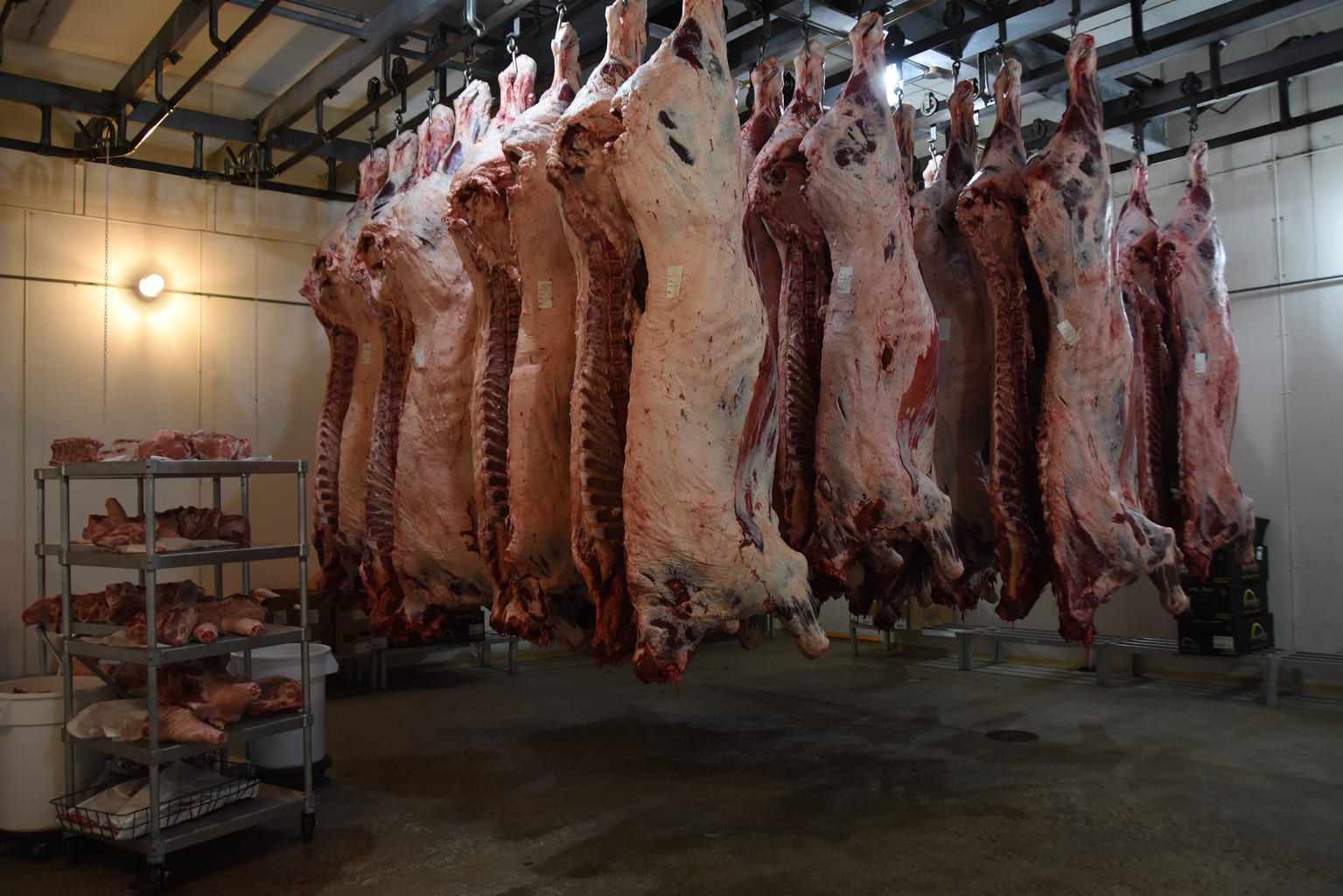Bagley Meat Market Edwardsville IL – A Tradition of Serving the Best Meats to Locals
Bagley Meat Market Edwardsville IL – A Tradition of Serving the Best Meats to Locals
Blog Article
Why Buying at a Neighborhood Meat Market Guarantees Fresh, High-Quality Cuts
Shopping at a local meat market provides unique benefits that often go unnoticed by customers accustomed to larger retail chains. The implications of selecting neighborhood prolong past immediate advantages, triggering a more detailed exam of what this selection truly implies for both customers and the neighborhood economic situation.
Advantages of Neighborhood Sourcing
In the realm of food purchase, the benefits of regional sourcing stand out prominently. By acquiring meat from local markets, consumers gain straight access to items that are typically fresher and more tasty than those discovered in bigger, commercial supermarkets. Neighborhood sourcing minimizes the moment and range food takes a trip from farm to table, which not just enhances taste but also preserves nutritional worth.

In addition, neighborhood sourcing commonly provides openness relating to the beginnings of the meat. Customers can ask about the farming techniques made use of, animal well-being requirements, and whether the meat is natural or grass-fed. This details encourages customers to make educated choices straightened with their values.
Quality Assurance Standards
Regional meat markets usually abide by strenuous quality control standards that ensure the items used fulfill high safety and security and quality criteria. These standards typically encompass different stages of the meat manufacturing procedure, from sourcing to dealing with and storage.
First, regional markets usually establish strict distributor requirements, guaranteeing that just trusted ranches and manufacturers are used - bagley meat market edwardsville il. This minimizes the probability of contamination and promotes higher animal welfare standards. In addition, several local meat markets carry out regular assessments to validate that the meat is processed under hygienic problems, further lessening health and wellness risks
Temperature level control is another important aspect of quality control. Neighborhood meat markets often monitor refrigeration systems to preserve ideal storage temperatures, making certain that meat remains fresh and risk-free for intake. The implementation of traceability systems permits markets to track the beginning of their products, supplying openness and liability.
Last but not least, staff at local meat markets are typically educated to recognize signs of spoilage and recognize correct handling techniques. This commitment to high quality control not just boosts the total requirement of the meat however also cultivates consumer trust fund, making local meat markets a dependable resource for top quality cuts.
Sustaining Local Farmers
Sustaining regional farmers is crucial for cultivating a sustainable food system and improving neighborhood resilience. When customers select to go shopping at local meat markets, they directly contribute to the source of incomes of farmers in their area. This not only sustains the local economic situation however also reinforces the agricultural market, making sure that it stays vivid and feasible.


Moreover, sustaining neighborhood farmers cultivates a feeling of area and link in between manufacturers and consumers. It encourages transparency in food sourcing and infuses count on, as consumers can establish relationships with the individuals that elevate their food. This straight link ultimately brings about a more engaged and educated public, which is essential for promoting for lasting farming practices in the future.
Sustainable Practices
Sustainable practices in meat markets play a crucial role in advertising ecological stewardship and ensuring animal welfare. Local meat markets frequently prioritize sourcing their products from farms that carry out sustainable and honest farming methods. These methods consist of rotational grazing, which assists preserve dirt wellness and minimizes carbon discharges, alongside reducing making use of antibiotics and hormonal agents in animals.
Additionally, regional meat markets he said generally highlight transparency in their supply chains. Consumers are given with details pertaining to the beginning of their meat, enabling them to make enlightened choices that line up with their worths. By sustaining local farmers who exercise sustainable approaches, customers add to the preservation of biodiversity and the reduction of transport exhausts related to long-distance meat circulation.
Additionally, numerous local meat markets engage in waste reduction approaches, such as using every component of the pet and advertising off-cuts that may or else go unsold. By fostering an extra sustainable strategy to meat consumption, these markets not only offer top notch items but additionally add positively to the setting and pet welfare. Basically, purchasing at a regional meat market aligns customers with a broader motion in the direction of ethical and responsible food sourcing.
Customized Customer Care
Shopping at a meat market commonly incorporates greater than just the products used; it is likewise regarding the experience and the partnerships built between clients and personnel. Individualized customer care is a hallmark of regional meat markets, establishing them besides bigger grocery store chains. Knowledgeable staff make the effort to comprehend private consumer choices, making sure that each browse through is customized to particular requirements.
Clients gain from experienced advice on cuts, cooking techniques, and preparation ideas, promoting a feeling of trust fund and commitment. This tailored communication allows customers to ask questions and seek recommendations, leading to informed buying decisions. Team member frequently keep in mind regular customers and their preferences, creating an inviting ambience that grows area connections.
Additionally, individualized service reaches special demands, such as personalized cuts or details prep work techniques, which larger retailers might not suit. This degree of interest reinforces the dedication of neighborhood meat markets to high quality and client complete satisfaction.
Essentially, personalized consumer solution not only boosts the purchasing experience however also makes certain that consumers entrust to the very best items fit to their culinary needs, making every browse through a fulfilling one.
Final Thought
Finally, purchasing at a regional meat market provides many advantages, consisting of exceptional quality and high quality due to minimized travel times. Rigorous high quality control measures improve transparency and make sure high standards for items. Supporting neighborhood farmers fosters area relationships and reinforces the local economic situation, while sustainable techniques contribute to ecological stewardship. Additionally, individualized customer care boosts the buying experience, making neighborhood meat markets a preferred option for consumers seeking both top quality and ethical factors to consider in their food sourcing.
The implications of selecting local prolong beyond instant advantages, motivating a better assessment of what this choice genuinely suggests for both consumers and the neighborhood economic situation.
Sustaining regional meat markets likewise contributes to check my source the local economic climate. Neighborhood meat markets often monitor refrigeration systems to keep optimal storage temperatures, making sure that meat remains fresh and risk-free for consumption.Regional farmers are typically extra attuned to the certain needs of their communities, elevating and growing plants animals that straighten with local preferences and preferences. Sustaining neighborhood farmers cultivates area partnerships and strengthens the neighborhood economic climate, while lasting methods add to ecological stewardship.
Report this page